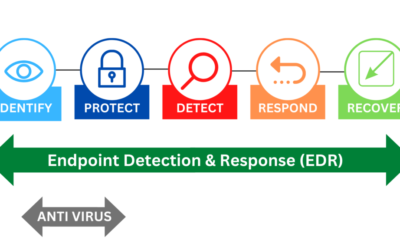In today’s competitive market, businesses that leverage AI tools to streamline operations and enhance customer engagement are seeing dramatic improvements in both productivity and profits. According to Gartner, AI can save up to 30% of time on administrative tasks—time that can be reallocated to higher-value activities like strategic planning and customer service.
In this blog, we’ll explore some of the top AI tools that can transform your business, helping you automate repetitive tasks, gain insights from data, and optimize customer relationships. From workflow automation to CRM enhancements, these tools are becoming invaluable assets for companies aiming to stay ahead of the curve.
1. Workflow Automation – Streamlining Day-to-Day Tasks
How Workflow Automation Works
Workflow automation tools use AI to reduce manual effort by automating routine and repetitive tasks, freeing up your team to focus on strategic initiatives. AI-driven workflow automation can cover tasks like data entry, document processing, email sorting, and even some aspects of customer service. By reducing the time spent on repetitive work, companies can achieve greater operational efficiency and reduce errors in critical processes.
Popular Workflow Automation Tools
Zapier: Known for its vast integration capabilities, Zapier connects various apps and automates workflows between them. For example, it can automatically update a CRM with customer details from a new email, then notify relevant team members.
UiPath: UiPath offers robotic process automation (RPA) solutions that help companies automate complex workflows, often at scale. This tool is particularly popular in industries with high volumes of administrative tasks, such as finance and healthcare.
Microsoft Power Automate: Part of the Microsoft ecosystem, Power Automate provides businesses with seamless automation within Microsoft apps and beyond. This tool is perfect for automating tasks across Microsoft 365, including Teams, Outlook, and Excel.
Benefits of Workflow Automation
Increased Efficiency: By automating manual tasks, employees can dedicate more time to high-impact work.
Cost Savings: Automation reduces the need for additional resources, lowering labor costs over time.
Scalability: Automated workflows are easy to scale, supporting growth without significantly increasing costs.
By implementing workflow automation tools, businesses can streamline processes and ensure consistency in everyday operations, leading to improved productivity and cost savings.
2. Predictive Analytics – Making Data-Driven Decisions
What is Predictive Analytics?
Predictive analytics uses historical data and AI algorithms to predict future outcomes. This technology allows businesses to anticipate demand, understand customer behavior, optimize inventory levels, and even prevent potential issues before they arise. With insights from predictive analytics, companies can make better decisions, allocate resources more effectively, and enhance their strategic planning.
Popular Predictive Analytics Tools
IBM Watson Analytics: Known for its user-friendly interface and advanced analytics capabilities, IBM Watson allows businesses to analyze data trends and uncover insights without needing a data science background.
Google Analytics with Predictive Features: Google Analytics now offers predictive metrics like “churn probability” and “purchase probability,” which allow e-commerce businesses to predict the likelihood of customer actions and adjust strategies accordingly.
SAP Analytics Cloud: SAP combines BI, predictive analytics, and planning capabilities in one platform. It’s particularly valuable for enterprises seeking a comprehensive analytics solution that integrates with SAP ERP systems.
Benefits of Predictive Analytics
Improved Forecasting: With accurate demand forecasts, businesses can optimize inventory and staffing, reducing costs.
Enhanced Customer Experience: Predictive insights allow businesses to tailor experiences to individual customers based on predicted behavior.
Proactive Problem-Solving: Businesses can identify potential issues early and act to prevent them, improving overall efficiency.
With predictive analytics, companies are better equipped to anticipate changes and adapt quickly. This proactive approach helps businesses stay competitive and responsive to market trends.
3. CRM with AI – Enhancing Customer Relationships
AI-Driven CRM Capabilities
Customer Relationship Management (CRM) systems enhanced with AI capabilities help businesses not only store customer information but also analyze it to uncover patterns and preferences. AI-powered CRMs can segment customers, personalize interactions, predict customer needs, and even automate follow-up actions, all of which enhance customer satisfaction and loyalty.
Popular CRM Tools with AI Features
Salesforce Einstein: Salesforce’s AI module, Einstein, adds predictive insights, recommendations, and automation to help sales and support teams engage customers more effectively. For example, Einstein can predict which leads are most likely to convert, allowing sales reps to focus their efforts where it matters most.
HubSpot with AI Features: HubSpot offers AI-driven chatbots, smart content, and lead scoring, all aimed at making the customer journey smoother and more engaging. These features enable businesses to serve relevant content and anticipate customer questions.
Zoho CRM with Zia AI Assistant: Zoho’s AI assistant, Zia, can interpret customer sentiments, analyze email patterns, and even suggest workflow automation improvements. Zia’s ability to assist in lead scoring and activity tracking can help businesses better understand and prioritize customer relationships.
Benefits of AI-Driven CRM
Personalized Customer Experiences: AI-enhanced CRMs allow businesses to personalize interactions based on customer behavior and preferences, fostering deeper connections.
Efficient Lead Management: Predictive lead scoring identifies high-value prospects, ensuring sales teams focus on the most promising leads.
Automated Customer Support: AI chatbots can manage common customer inquiries, reducing the need for human intervention in routine support tasks.
With AI-powered CRM systems, businesses can move beyond basic customer management to proactive and personalized engagement, ultimately driving customer loyalty and lifetime value.
4. Scheduling a Session to Integrate AI Tools in Your Business
With workflow automation, predictive analytics, and AI-driven CRM systems, businesses can unlock significant productivity and profit gains. Each of these tools offers unique advantages that can be tailored to meet specific business goals, from enhancing efficiency to building stronger customer relationships.
However, integrating these AI tools effectively requires careful planning and expertise. Our team is here to guide you through this process, helping you identify the right tools for your business and ensuring seamless implementation.
📞 Ready to explore how these AI tools can transform your operations? Book a session with us today to discuss how we can help you integrate AI and optimize your business for productivity and profit!
Conclusion
The potential of AI in business is vast, and early adopters are already reaping the rewards in productivity, efficiency, and profitability. From automating workflows to making data-driven decisions with predictive analytics, and creating personalized experiences with AI-enhanced CRM, the right AI tools can elevate any business’s operations.
The journey toward AI integration can seem daunting, but with expert guidance, it’s within reach. Take the first step today—explore how AI can be a game-changer for your business and set the foundation for a future driven by intelligent, automated solutions.




